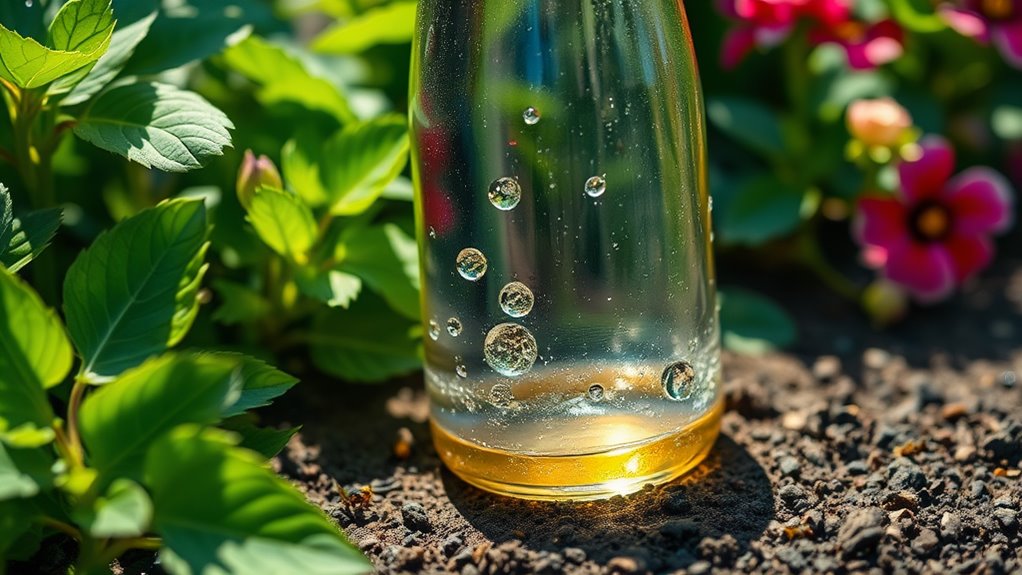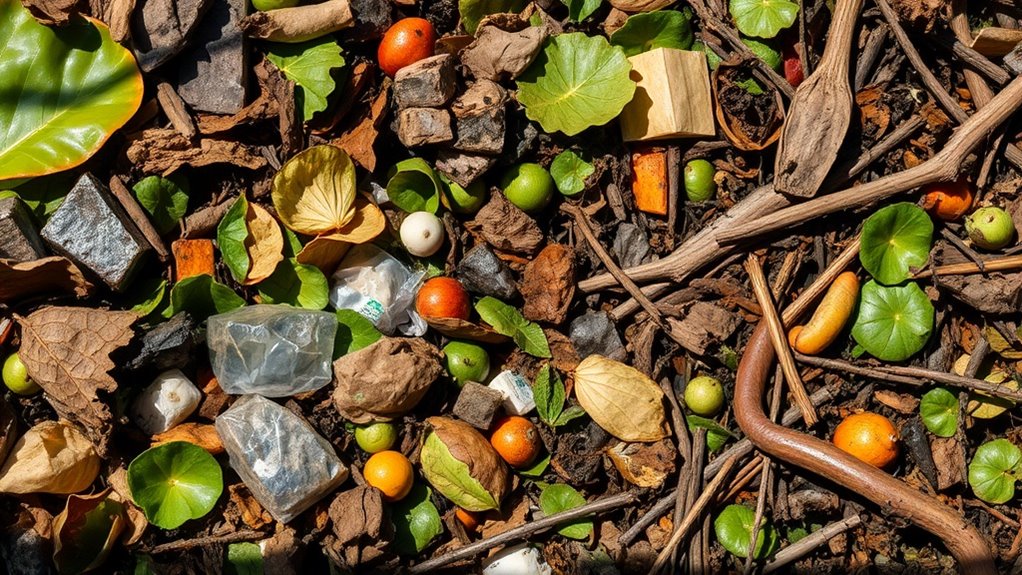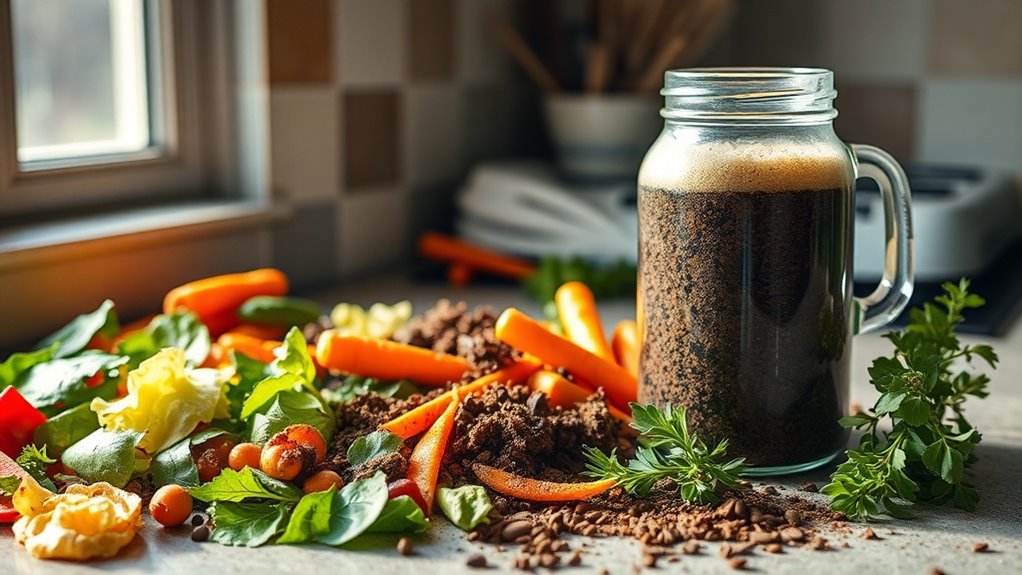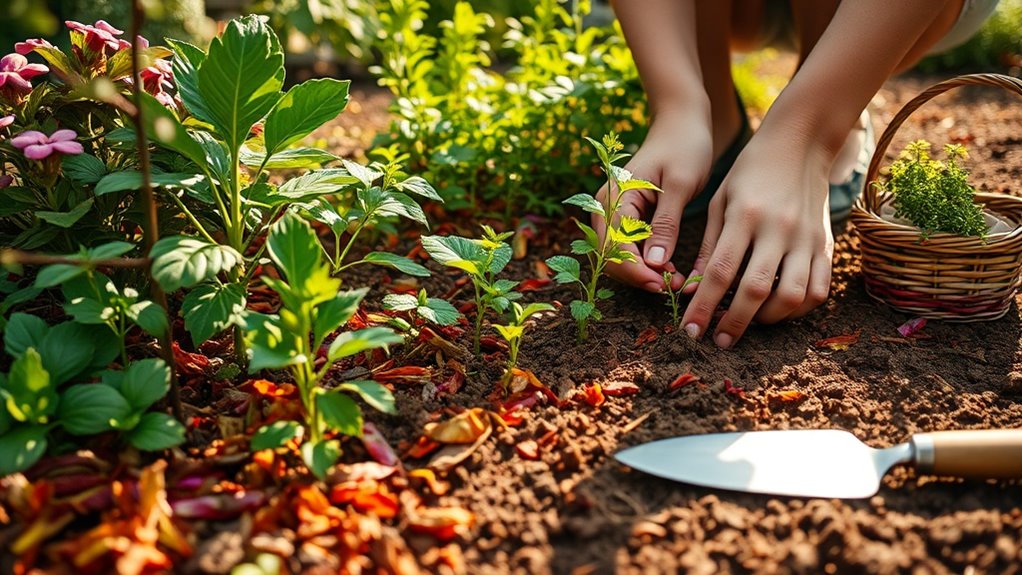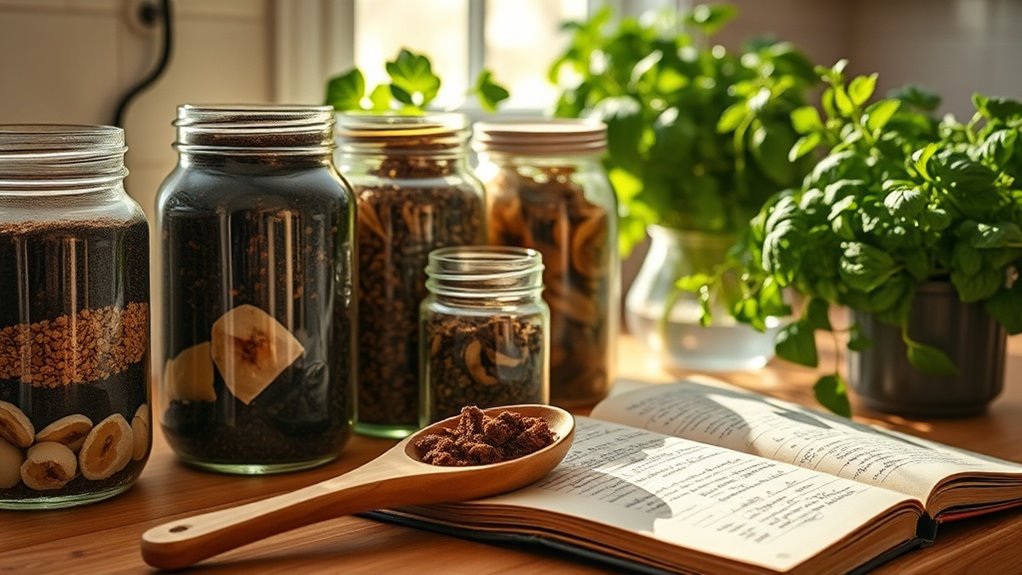Vinegar in the Garden. Here’s How It Helps With Pests
Did you know that over 80% of gardeners face pest issues at some point? Fortunately, vinegar offers an effective, eco-friendly solution for managing these unwanted intruders. By harnessing the power of acetic acid, you can disrupt the environments of common pests like aphids and ants. Understanding how to properly utilize vinegar in your garden could significantly enhance your pest control strategy. So, how do you create and apply this natural remedy?
Key Takeaways
- Vinegar disrupts pests’ environments due to its acetic acid content, effectively managing infestations without harmful chemicals.
- A vinegar-based pest spray is non-toxic and safe for plants, pets, and beneficial insects when diluted correctly.
- Common pests like aphids, fruit flies, and ants can be effectively managed using vinegar’s natural properties.
- To create a pest spray, mix equal parts vinegar and water, adding dish soap and essential oils for enhanced effectiveness.
- Apply the spray on a calm day, focusing on pest-infested areas, and reapply regularly for continued pest management.
The Benefits of Using Vinegar in the Garden
Have you ever considered using vinegar as a natural solution for garden pests?
Vinegar garden use offers several benefits, primarily due to its acetic acid content, which disrupts pests’ environments.
It’s non-toxic, making it safe for your plants, pets, and beneficial insects.
By diluting vinegar with water, you create an effective spray that can deter unwanted visitors without harsh chemicals.
Additionally, vinegar can help improve soil health by balancing pH levels when used correctly. Regular application not only protects your garden but also promotes a more sustainable gardening practice, aligning with eco-friendly principles and reducing reliance on synthetic pesticides. Furthermore, vinegar can be used to target specific pests, such as fruit flies, ensuring a focused approach to pest management.
Types of Pests Vinegar Can Help Eliminate
Numerous garden pests can be effectively managed with vinegar, making it a versatile solution for gardeners seeking natural alternatives. Here are some common pests that vinegar can help eliminate:
| Pest Type | Effect of Vinegar | Recommended Action |
|---|---|---|
| Aphids | Disrupts feeding | Spray directly on infested plants |
| Fruit Flies | Deters and traps | Use vinegar traps nearby |
| Ants | Disrupts scent trails | Spray along their paths |
Using vinegar in your garden can reduce these pests without harmful chemicals, allowing you to maintain a healthy, thriving environment. Additionally, vinegar’s natural pest control properties make it a safe alternative to chemical pesticides.
How to Create Your Own Vinegar Pest Spray
Wondering how to create an effective vinegar pest spray for your garden?
Start with a spray bottle and mix one part white vinegar with one part water.
For enhanced effectiveness, add a few drops of liquid dish soap to the mixture; this helps the solution adhere to pests.
Shake well to combine.
If you’re targeting specific pests, you can include essential oils like peppermint or tea tree for extra potency.
Make sure to label your spray bottle clearly.
Store it in a cool, dark place until you’re ready to use it.
This simple blend can be a powerful ally against garden pests! Additionally, vinegar is known for its natural pest control properties, making it a great choice for eco-conscious gardeners.
Application Techniques for Maximum Effectiveness
Once you’ve prepared your vinegar pest spray, understanding how to apply it effectively can significantly enhance its impact on unwanted garden visitors.
Start by choosing a dry, calm day to avoid wind dispersing your solution. Use a spray bottle for targeted application, focusing on affected plants, particularly the undersides of leaves where pests often hide.
Apply generously, ensuring thorough coverage, but avoid soaking the plants to prevent damage. Reapply every few days or after rainfall for consistent effectiveness. Additionally, vinegar is known for its ability to repel aphids and other pests, making it a versatile choice for pest control.
Monitor the garden closely to assess the spray’s impact, adjusting the concentration if necessary for stronger infestations. This approach maximizes your vinegar spray’s potential.
Safety Considerations When Using Vinegar in Gardening
It’s crucial to take precautions to protect your plants and yourself.
Follow these guidelines:
- Dilute Properly: Always dilute vinegar with water to prevent harming your plants.
- Target Specific Areas: Apply vinegar directly to pest-infested areas, avoiding healthy plants.
- Wear Protective Gear: Use gloves and goggles to protect your skin and eyes during application.
- Test First: Conduct a patch test on a small plant section to monitor for adverse reactions. Additionally, vinegar can act as a natural pest repellent, making it a versatile tool in your gardening arsenal.

